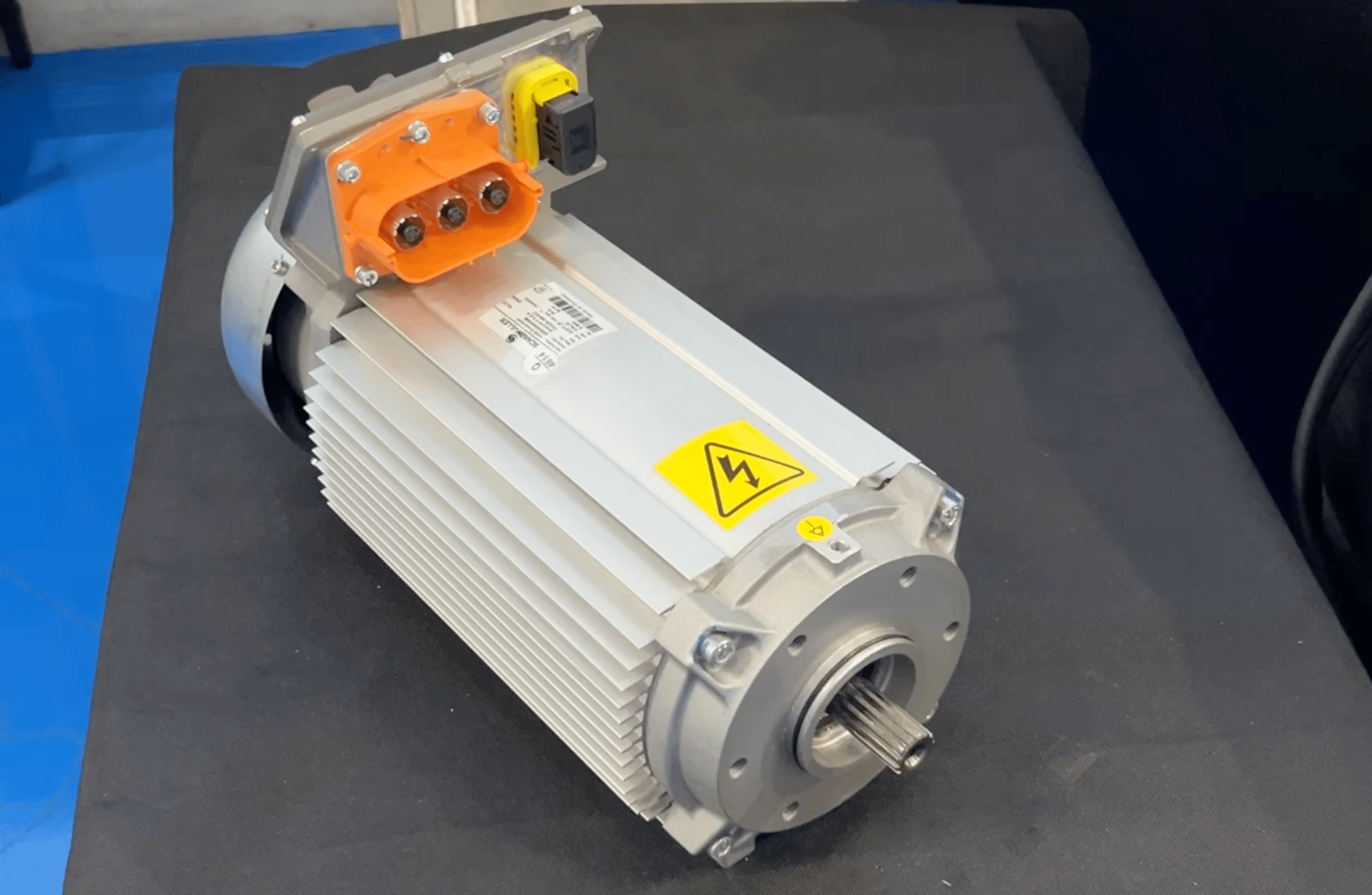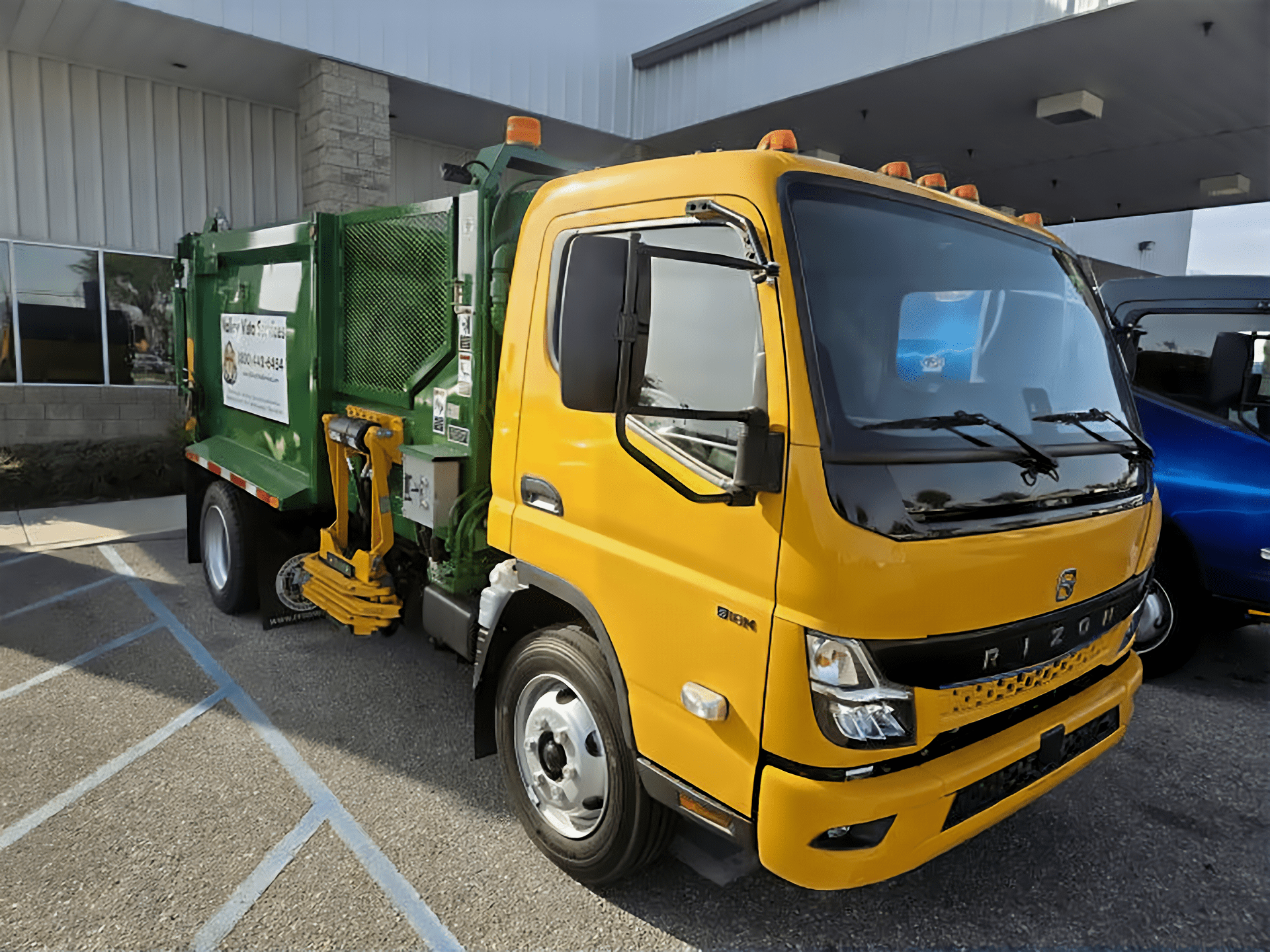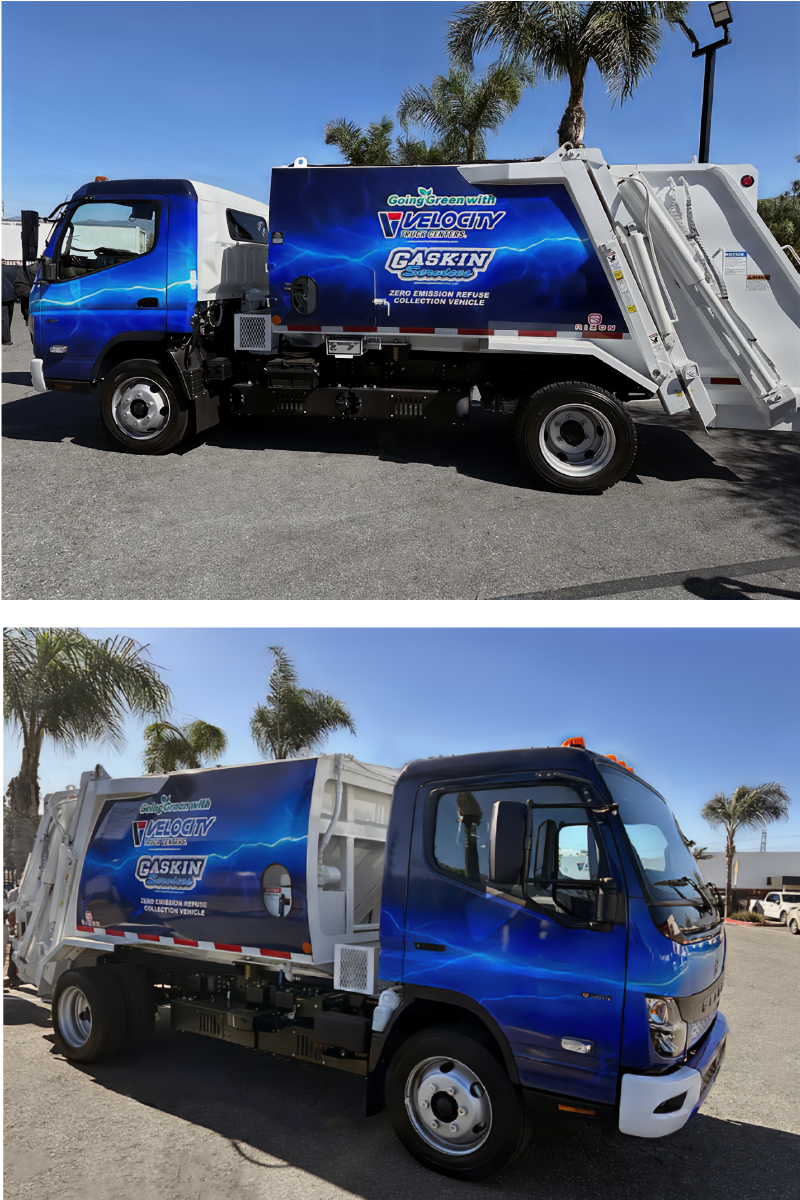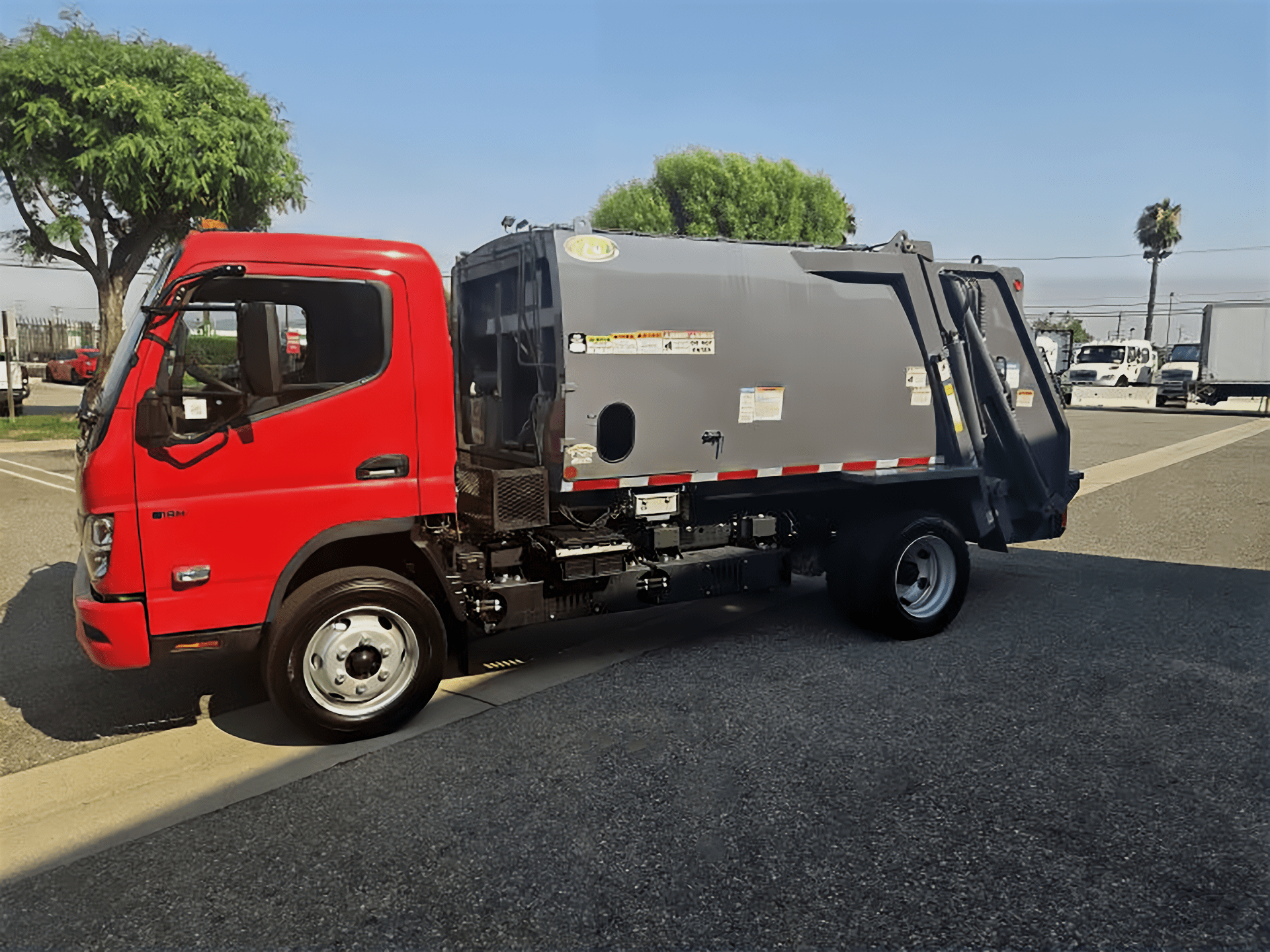An electric garbage truck requires a chassis that allows the vehicle to operate auxiliary systems supporting trash compactors. RIZON Truck has engineered a flexible medium-duty electric truck that can easily be upfitted with a trash compactor.
How RIZON Powers Electric Garbage Truck Applications
RIZON comes equipped with an electric power take-off unit that draws electricity directly from the electric truck’s battery, supporting municipalities and businesses with fleet electric fleet solutions, including electric garbage trucks.

These systems are particularly beneficial for applications where vehicles remain stationary while performing tasks.
RIZON trucks are operating on the streets of America and Canada and support refuse and trash collection operations.
Why Class 4 and 5 Electric Trucks are Ideal for Refuse and Garbage Collection
An Electric garbage truck benefits from a multitude of advantages EV technology provides.
Ideal for Urban Duty Cycles and Quiet Operations
Adequate range for the job
RIZON trucks have impressive range and efficiency for class 4 and 5 medium-duty trucks, achieving up to 155 miles or range understanding standard testing conditions.
For a complete list of product specs, download our brochure.
Braking Technology
Garbage trucks operate in tight city streets, frequent stop-and-go traffic, and residential areas. RIZON’s cab-over design makes it highly maneuverable. Its regenerative braking is more robust than typical internal combustion vehicle braking systems, extending the brake life, which is critical when a truck stops hundreds of times a day.
An added benefit of regenerative brakes is that they recover the kinetic energy generated during braking and convert it into electrical energy, storing it back into the battery, and extending the range.
Quiet Operation
Electric trucks reduce urban noise pollution, especially useful for early-morning or overnight routes in residential zones.
This leads to fewer complaints from residents and smoother relationships with the communities served. Plus, operators experience less noise fatigue in the cab, improving focus and comfort during long shifts.
Lower Operating Costs

Fuel Efficiency
While electric trucks often have a higher upfront cost, the total cost of ownership may actually be less over time.
RIZON trucks have flexible charging options that support both level 2 AC charging and DC fast charging. While electricity rates vary, it is typically much cheaper to charge a vehicle than it is to fill one with diesel. This is especially true if the operator relies more on AC charging which is inherently cheaper than fast charging.
For a deep dive into the cost of charge versus the cost of diesel, check our article.
Reduce Maintenance
Electric vehicles have fewer moving parts than internal combustion vehicles and don’t need engine oil or a filter.
Additionally, regenerative brakes reduce wear and tear on brake pads and rotors, which last much longer.
For more information, read our article on EV maintenance vs. gas and diesel.
Branding and Community Impact

Waste and refuse collection is one of the most visible fleet operations in any city. What a truck looks like (and sounds like) communicates a lot about brand and commitment to the community.
Trucks with quiet operations make a great impression in the communities they serve and serve as flagbearers that demonstrate fleet sustainability goals. Offering zero-emission electric garbage trucks is the type of request for proposal (RFP) that wins contracts.
Making the Shift to Electric Garbage Trucks in Fleet Operations
Transitioning to electric garbage trucks within fleet management presents numerous financial, operational, and ecological benefits for fleets throughout North America. With available tax breaks and diminished dependence on fossil fuels, electric vehicles provide fleet operators a viable option compared to gasoline and diesel. As the market grows and infrastructure improves, embracing electric vehicles enables fleets to remain competitive and efficient.


